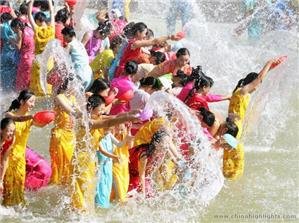Beijing says, Yunnan face is dark, their face is light.
Yunnan says. Beijing lungs are dark, their lungs are light.
1380 kilmometer border between Yunnan and Tibet.
As the crow flies, just 250 miles from Lijiang to Myanmar
The Dongba chiefs are intellectuals, only 35 are left. There is a wonderful museum honoring their culture and knowledge.
Yunnan coffee grown in the south of the province is very good, made from an Arabic bean
Drivers call tolls, Highway Robbery.
The Yak is lovingly referred to as a hippier cow.
Young children are put out to play smoothered in yak butter to help them adjust to extreme temperature changes.
Yunnan says. Beijing lungs are dark, their lungs are light.
1380 kilmometer border between Yunnan and Tibet.
As the crow flies, just 250 miles from Lijiang to Myanmar
The Dongba chiefs are intellectuals, only 35 are left. There is a wonderful museum honoring their culture and knowledge.
Yunnan coffee grown in the south of the province is very good, made from an Arabic bean
Drivers call tolls, Highway Robbery.
The Yak is lovingly referred to as a hippier cow.
Young children are put out to play smoothered in yak butter to help them adjust to extreme temperature changes.


























 Preparing to join the early morning class of Tai Chi
Preparing to join the early morning class of Tai Chi 
 Myself and Fransi ( from Surabaya) at Leaping Tiger Gorge,
Myself and Fransi ( from Surabaya) at Leaping Tiger Gorge, 


















 Ganlanba Village houses about 300 families, and hold their own market.
Ganlanba Village houses about 300 families, and hold their own market. 